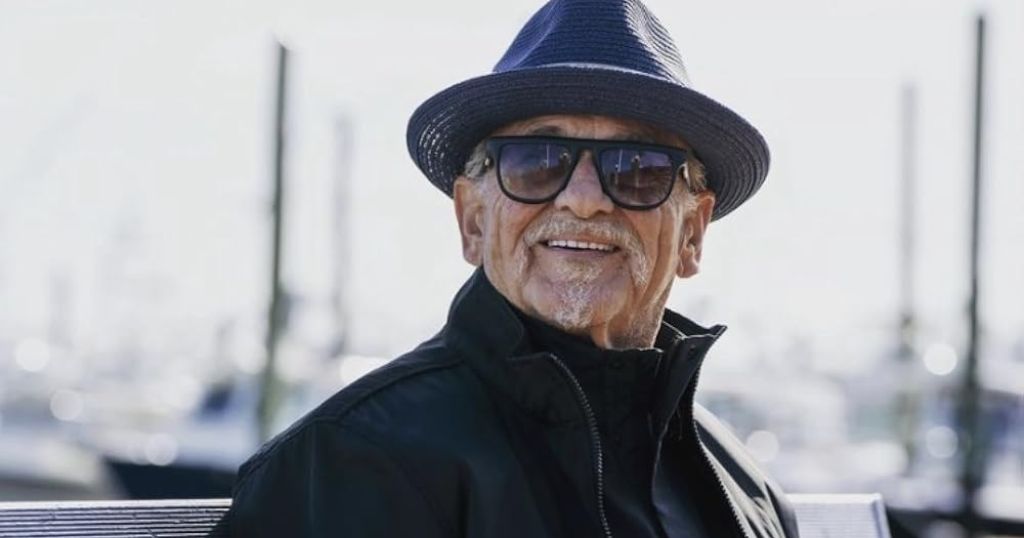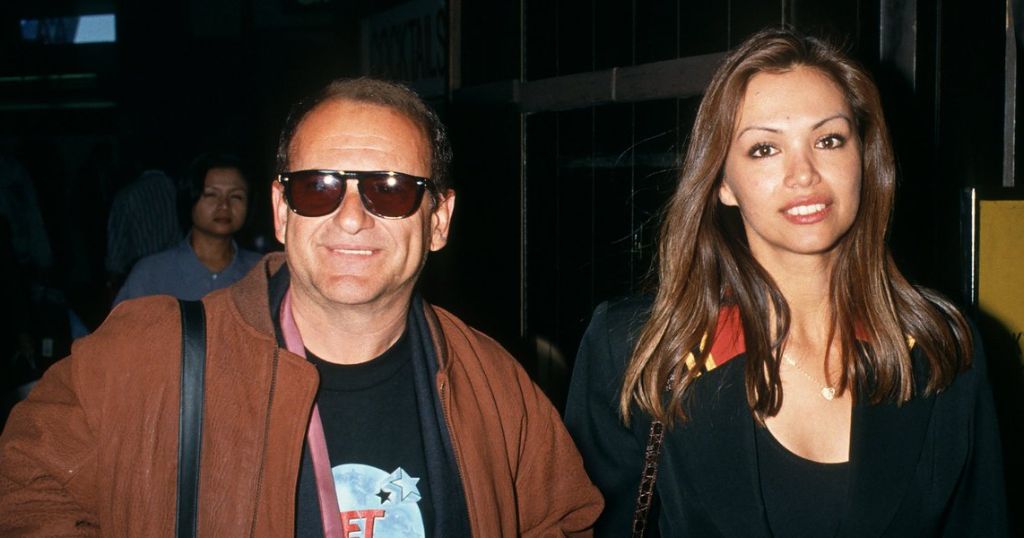Joseph Frank Pesci changed Hollywood without fitting any traditional mold. Born February 9, 1943, in Newark, New Jersey, this 5’3″ actor built a legendary career through pure intensity and talent. At 82 years old in 2025, his estimated $50 million net worth reflects decades of unforgettable performances.
Pesci became famous for roles that terrified and entertained audiences in equal measure. From winning an Academy Award for Goodfellas to making families laugh in Home Alone, he proved size means nothing when you own every scene. His collaborations with Martin Scorsese and Robert De Niro created some of cinema’s most iconic moments.
Joe Pesci Quick Bio/Wiki
| Facts | Details |
| Full Name | Joseph Frank Pesci |
| Date of Birth | February 9, 1943 |
| Age | 82 years old (2025) |
| Height | 5’3″ (1.60m) |
| Birthplace | Newark, New Jersey, USA |
| Raised In | Belleville, New Jersey |
| Zodiac Sign | Aquarius |
| Nationality | American |
| Ethnicity | Italian-American |
| Net Worth | $50 million (estimated) |
| Profession | Actor, Musician |
| Years Active | 1961–present |
| Famous Roles | Tommy DeVito (Goodfellas), Harry Lime (Home Alone), Vinny Gambini (My Cousin Vinny) |
| Academy Awards | 1 Win, 3 Nominations |
| Marriages | 3 (all divorced) |
| Children | 2 daughters |
| Albums Released | 3 albums |
Joe Pesci Early Life & Family Roots (1943-1950s)
Joe Pesci grew up in a working-class Italian-American family in New Jersey. His mother Mary Mesce worked as a part-time barber while his father Angelo Pesci drove forklifts at General Motors and bartended. The family traced roots to Turin in northern Italy and Aquilonia in the province of Avellino.
Though born in Newark, Pesci was raised in Belleville, New Jersey, where he graduated from Belleville High School. His childhood friend Robert Bisaccia later became an American Mafia figure, exposing Pesci early to the world he’d portray on screen. That authentic New Jersey accent and working-class edge became his signature.
Child Performer & Early Entertainment (1948-1960s)
By age five, Pesci was performing in plays in New York. At ten, he became a regular on TV variety show “Startime Kids” alongside Connie Francis. This early comfort with audiences set him apart from other kids.
His first film role came in 1961 with “Hey, Let’s Twist!” as an uncredited dancer. A fifteen-year gap followed before his next screen appearance. During the 1960s, Pesci played guitar with Joey Dee and The Starliters, who popularized the “Peppermint Twist” at the Peppermint Lounge in New York City.
The Musical Years & Struggle Period (1960s-1970s)
In 1958, Pesci introduced Bob Gaudio to Tommy DeVito and Frankie Valli, helping form The Four Seasons. When DeVito struggled financially in the 1970s after leaving the band, Pesci put him on his payroll and arranged film cameos. That loyalty revealed who Pesci was beyond any tough-guy image.
Pesci released debut album “Little Joe Sure Can Sing!” in 1968 under stage name Joe Ritchie. From 1970 to 1976, he teamed with Frank Vincent as comedy duo “Vincent and Pesci,” doing Abbott and Costello-style routines mixed with Don Rickles insult comedy. They even hit Broadway in 1975 with “The New Vaudevillians,” though it lasted just one week.
Between entertainment gigs, Pesci worked as a barber. After “The Death Collector” in 1976, he lived above Amici’s Restaurant in The Bronx and worked there. Giving up on acting seemed like the only realistic option.
The Scorsese-De Niro Discovery & Breakthrough (1979-1984)
Robert De Niro spotted Pesci in “The Death Collector” and convinced Martin Scorsese to cast him in “Raging Bull” (1980). They tracked him down when he was close to quitting acting forever. During filming as Joey LaMotta, Pesci broke one of his ribs showing complete physical commitment, according to Los Angeles Times.
The performance earned him the BAFTA Film Award for Newcomer to Leading Film Roles in 1981 plus an Academy Award nomination for Best Supporting Actor. That breakthrough came just when Pesci thought his acting dreams were finished. Between “Raging Bull” and “Goodfellas,” Pesci appeared in smaller films like “Dear Mr. Wonderful” (1982), “Eureka” (1983), and “Easy Money” (1983).
He also worked with De Niro in Sergio Leone’s “Once Upon a Time in America” (1984) alongside James Woods. A failed sitcom “Half Nelson” (1985), where he played private detective Rocky Nelson, dimmed his visibility. He starred in “Man on Fire” (1987) during this mid-career lull.
The Gangster Trilogy: Defining an Era (1988-1995)
Pesci appeared in Michael Jackson’s “Moonwalker” (1988) as crime boss Frankie “Mr. Big” LiDeo—an anagram for producer Frank DiLeo. Then came the role that changed everything: Tommy DeVito in “Goodfellas” (1990). The infamous “Funny how?” scene came from Pesci’s real life when he was waiting tables and called a mobster “funny.”
Scorsese let actors improvise during rehearsals, recording multiple takes and writing the best lines into the script. According to Maxim magazine, Pesci wrote and directed the “You think I’m funny?” scene at Scorsese’s request, reported by IMDb. When Pesci won the Academy Award for Best Supporting Actor, his entire speech was five words: “It’s my privilege. Thank you.”
When asked about his brief acceptance, Pesci explained: “I really didn’t think I was going to win” as reported by The Guardian. His old comedy partner Frank Vincent appeared in “Goodfellas,” and the famous “shine box” scene where Pesci’s character kills Vincent’s character became one of the most quoted moments in gangster film history. “Casino” (1995) reunited Pesci with Scorsese and De Niro as Nicky Santoro, based on real-life enforcer Anthony Spilotro (nicknamed “The Ant”).
During filming, Pesci broke the same rib he’d injured fifteen years earlier on “Raging Bull.” The dinner scene with Tommy’s mother was largely improvised, showcasing natural spontaneous ability. Scorsese trusted his actors’ instincts completely during these creative sessions.
You like it also: Madelyn Cline Height, Age, Net Worth, Career And Biography
Comedy King: The Other Side of Pesci (1990-1998)
Director Chris Columbus cast Pesci in “Home Alone” (1990) because he was one of his heroes, though he doubted Pesci would accept such a broadly comic role. Columbus placed a “Curse Jar” on set for adults who swore—Pesci reportedly filled it in a single day. His portrayal of bumbling burglar Harry Lime alongside Daniel Stern became a cultural touchstone for millennials.
Pesci’s “cartoon cursing” or menacing gibberish earned comparisons to Looney Tunes character Yosemite Sam. He earned $3 million for “Home Alone 2: Lost in New York” (1992). His role as Vincent “Vinny” LaGuardia Gambini in “My Cousin Vinny” (1992) showed a cocky Brooklyn lawyer whose unorthodox methods save the day.
Pesci played comedic sidekick Leo Getz in the Lethal Weapon sequels released in 1989, 1992, and 1998, becoming best friends with Martin Riggs (Mel Gibson) and Roger Murtaugh (Danny Glover). He earned $3 million for “Lethal Weapon 4” (1998). His comedy work proved he could carry films beyond the gangster genre.
Joe Pesci Dramatic Range & Diverse Roles (1991-1997)

Pesci showed serious range in Oliver Stone’s “JFK” (1991) as David Ferrie, handling complex conspiracy thriller material. That same year, he led “The Public Eye” (1992) as photographer Leon “Bernzy” Bernstein—a critically acclaimed performance often overlooked. His first major starring role in “The Super” (1991) received poor reviews, but he bounced back quickly.
In “With Honors” (1994), Pesci played a homeless man living on Harvard’s campus, demonstrating non-comedic, non-gangster territory. He earned $3.5 million for “Jimmy Hollywood” (1994). Robert De Niro and Chazz Palminteri personally offered Pesci the role of Carmine in “A Bronx Tale” (1993), showing peer respect.
Pesci was considered for Myron Larabee opposite Arnold Schwarzenegger in “Jingle All the Way” (1996), but Sinbad got the role. His 1997 comedies “8 Heads in a Duffel Bag” and “Gone Fishin'” were poorly received and questioned his capabilities as a lead actor. These failures pushed him toward retirement within two years.
Musical Return & Second Album (1998)
Pesci released “Vincent LaGuardia Gambini Sings Just for You” in 1998, named after his “My Cousin Vinny” character. The album mixed humor with serious big band jazz across various genres. The single “Wise Guy” was a rap number referencing Mafia gangsterism and interpolated Blondie’s 1980 hit “Rapture,” co-written and produced by the Trackmasters hip-hop production team.
The album showed musical versatility beyond his screen persona. Music offered creative freedom away from Hollywood’s expectations and typecasting. This artistic outlet provided balance during a challenging period in his film career.
Retirement & Semi-Absence (1999-2016)
In 1999, Pesci announced retirement to pursue music and enjoy life away from cameras. He largely stayed away except for rare appearances. His first return came in 2006 with a cameo in De Niro’s spy film “The Good Shepherd,” supporting his longtime collaborator’s directorial project.
Pesci starred opposite Helen Mirren in brothel drama “Love Ranch” (2010)—one of his few romantic lead-type roles. In 2011, he sued Fiore Films over the film “Gotti,” claiming they broke their promise to cast him as mobster Angelo Ruggiero. Pesci stated he’d gained 30 pounds for the role and sued for $3 million—his promised payment—settling out of court in 2013 with the role going to Pruitt Taylor Vince.
He appeared with Don Rickles in a Snickers commercial in 2011, portraying an angry alter ego calmed by eating the candy bar. Pesci also appeared in the 2016 music documentary “Jimmy Scott: I Go Back Home,” filmed recording “The Folks Who Live on the Hill.” These sporadic appearances kept him somewhat visible during retirement.
The Irishman: Reluctant Return (2017-2019)
Scorsese reportedly offered Pesci the role of Russell Bufalino in “The Irishman” fifty times before he agreed. Pesci kept refusing, saying he didn’t want to do “the gangster thing again” while Scorsese insisted it would be “different.” His understated, chilling performance as the quiet Pennsylvania crime boss proved Scorsese right.
The role earned nominations for Academy Award for Best Supporting Actor, BAFTA Award for Best Supporting Actor, and two Screen Actors Guild Awards. His restrained approach contrasted with his explosive “Goodfellas” performance, showing artistic growth. On working with De Niro, Pesci once said: “We work so well together. It’s like breathing in and out. It’s so easy for us—we feed off each other” according to interviews.
Pesci released his third album “Pesci… Still Singing” on November 29, 2019—his first album in twenty-one years. The timing alongside “The Irishman” showed him balancing both creative passions. His return proved retirement for artists of his caliber is rarely absolute.
Recent Work & Current Life (2020-2025)
Pesci co-starred in Pete Davidson’s comedy series “Bupkis” in 2023, showing willingness to work with younger comedians. He also appeared in Jack Huston’s directorial debut “Day of the Fight” (2023), continuing selective work. At 82, he remains active on his own terms, choosing projects that interest him.
His current lifestyle stays mostly private, away from Hollywood’s spotlight. Pesci maintained Jersey Shore connections and friendships from his early days. The barber profession and working-class roots still define who he is beyond the fame.
Read More: Steph Wilfawn: All About NFL Star Cooper DeJean’s Girlfriend
Personal Life & Relationships

Pesci married three times, with his first marriage in January 1964 producing one daughter. His second marriage to actress and model Claudia Haro lasted from September 7, 1988 to 1992, giving him daughter Tiffany Pesci. His relationships stayed relatively private compared to other Hollywood stars.
In 2000, Pesci began dating model Angie Everhart, who stands 5’10”—seven inches taller than him. They became engaged in 2007 after seven years together but broke up in 2008. The height difference demonstrated Pesci never let physical stature limit his personal life.
Joe Pesci Financial Success & Real Estate
Pesci’s estimated $50 million net worth reflects smart financial decisions beyond acting salaries, reports Celebrity Net worth. In 1994, he purchased an eight-bedroom mansion on the Jersey Shore for $850,000. The 7,200-square-foot home featured glass walls, a spiral staircase, an elevator, and a deck with a heated swimming pool.
As confirmed by Realtor, he listed the property for $6.5 million in 2019 and sold it in October 2021 for an undisclosed price. Smart real estate investments supplemented his entertainment income throughout his career.
The Pesci Persona: Height, Voice & Presence
According to his IMDb profile, standing at 5’3″ (1.60m), Pesci often rounded up when discussing his height, telling The FreeLance Star in October 1992: “I’m not tall, only 5-feet-5”. He’s slightly taller than Kevin Hart (just over 5’2″) and four inches shorter than Tom Holland (5’7″). His stature became integral to his screen presence rather than a limitation.
Pesci’s high-pitched voice with a New Jersey accent and rapid-fire delivery made him instantly recognizable. His characters’ volatility and intensity created psychological largeness that contradicted his physical size. What others might see as disadvantages became his greatest strengths.
Born under the Aquarius zodiac sign on February 9, Pesci has different-colored eyes (heterochromia)—a trademark feature not commonly discussed. His trademark playing short-tempered and obscene characters with criminals became his specialty. Pesci’s commanding presence proved true screen power comes from within, not from height or conventional looks.
Creative Collaborations & Working Relationships
Pesci worked repeatedly with Martin Scorsese and Robert De Niro, creating one of cinema’s most productive partnerships. He once said of Scorsese: “Marty is probably the best director I’ve ever worked with and one of the best directors of our generation and previous generations” according to sources. Their collaborative trust produced masterpieces.
His comedy duo years with Frank Vincent from 1970-1976 laid groundwork for their later “Goodfellas” scenes together. Chris Columbus, Oliver Stone, and Pete Davidson all sought Pesci for specific projects because of his unique abilities. These directors understood what Pesci brought beyond typecasting.
His loyalty to Tommy DeVito of The Four Seasons and helping De Niro with directorial projects showed character. Pesci valued long-term creative relationships over one-time collaborations. That loyalty earned him respect throughout Hollywood beyond just acting talent.
Acting Method & Craft
Pesci’s improvisation skills became legendary on Scorsese sets, where the director recorded rehearsals and wrote the best lines into scripts. His intense screen presence came from complete commitment to characters, not from formal acting training. On “Raging Bull,” when asked about shooting in black and white or color, Pesci responded: “Black and white without any hesitation”—a choice that contributed to the film’s timeless documentary quality.
His authentic mob portrayal drew from childhood experiences and observations in New Jersey. Pesci brought realism in performance that made audiences believe every word. His approach was instinctive rather than academic, rooted in real life rather than acting theory.
His method preparation included physical sacrifices like breaking ribs twice during different films. Pesci’s comedic timing ranged from slapstick in “Home Alone” to dry wit in “My Cousin Vinny.” His versatility across genres demonstrated true mastery of the craft.
Cultural Impact & Legacy
Pesci demolished Hollywood’s traditional leading-man archetype, proving intensity and talent matter more than physical stature. His characters remain indelibly printed in pop culture, from the terrifying Tommy DeVito to the lovable bumbling Harry Lime. Multiple generations quote his lines and reference his scenes decades later.
His Italian-American representation showed complex, multidimensional characters beyond stereotypes. Pesci influenced the evolution of gangster cinema through naturalistic performances rather than theatrical ones. His cross-genre success from crime dramas to family comedies demonstrated true versatility.
Pesci’s career stands as proof that breaking Hollywood stereotypes is possible through pure talent. He inspired shorter actors and unconventional performers to pursue their dreams. His legacy in cinema history extends beyond awards to cultural influence that continues today.
Joe Pesci Awards, Recognition & Career Statistics
Pesci won the Academy Award for Best Supporting Actor for “Goodfellas” in 1990 with his famous five-word speech. He received Best Supporting Actor nominations for “Raging Bull” (1980) and “The Irishman” (2019). His BAFTA Film Award for Newcomer to Leading Film Roles in 1981 recognized his breakthrough performance.
His filmography spans over 50 films across crime dramas, comedies, and dramatic roles. Pesci’s work with Scorsese produced three masterpieces that defined 1990s cinema. His Screen Actors Guild Awards nominations and Golden Globe recognition showed industry-wide respect.
From child performer on “Startime Kids” to Oscar winner to reluctant retiree who returned for “The Irishman,” Pesci’s career defied expectations. His influence on method acting and improvisation changed how actors approach gangster roles. Critical acclaim followed him across genres, proving his versatility wasn’t accidental.
Related: Emily Blunt Height, Age, Net Worth, Husband, Family, Career and Biography
Conclusion
Joe Pesci’s journey from struggling barber and musician to Hollywood legend proves talent and persistence triumph over physical limitations. His 5’3″ frame never stopped him from commanding every scene through sheer intensity and authenticity. From “Raging Bull” to “The Irishman,” his collaborations with Scorsese and De Niro created cinema magic that will endure for generations.
His $50 million net worth and iconic status came from taking risks and staying true to himself. Pesci never tried to fit Hollywood’s mold—he shattered it completely. At 82 years old in 2025, his legacy inspires anyone who’s ever been told they’re too small, too different, or too unconventional to succeed.
FAQ’s About Joe Pesci
How tall is Joe Pesci really?
Joe Pesci stands 5’3″ (1.60m), though he claimed 5’5″ in interviews.
What is Joe Pesci’s net worth in 2025?
His estimated net worth is $50 million from film work and real estate investments.
How old is Joe Pesci?
Born February 9, 1943, Pesci is 82 years old in 2025.
Did Joe Pesci really break his ribs twice?
Yes, during “Raging Bull” (1980) and again on “Casino” (1995).
Why did Joe Pesci retire from acting?
In 1999, he retired to pursue music after several failed comedy films.
How many times did Scorsese ask Pesci to do The Irishman?
Scorsese reportedly offered the role fifty times before Pesci agreed.
Is Joe Pesci married?
He’s been married and divorced three times; last relationship ended in 2008.
How many children does Joe Pesci have?
Two daughters—one from his first marriage and Tiffany Pesci from his second.
Did Joe Pesci really help form The Four Seasons?
Yes, in 1958 he introduced Bob Gaudio to Tommy DeVito and Frankie Valli.
What was Joe Pesci’s shortest Oscar speech?
Five words in 1990: “It’s my privilege. Thank you.”










